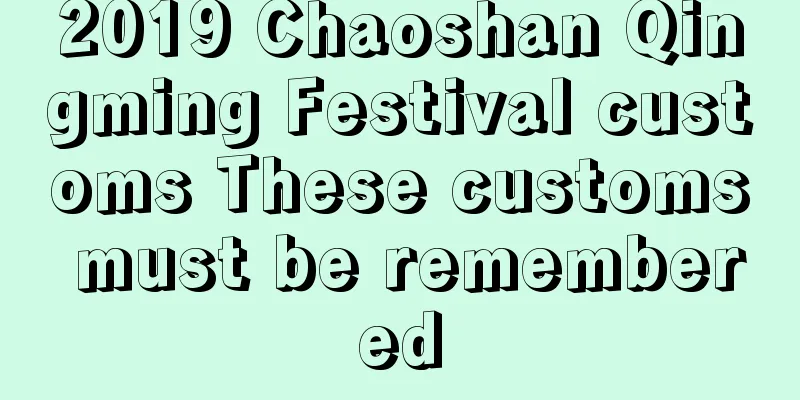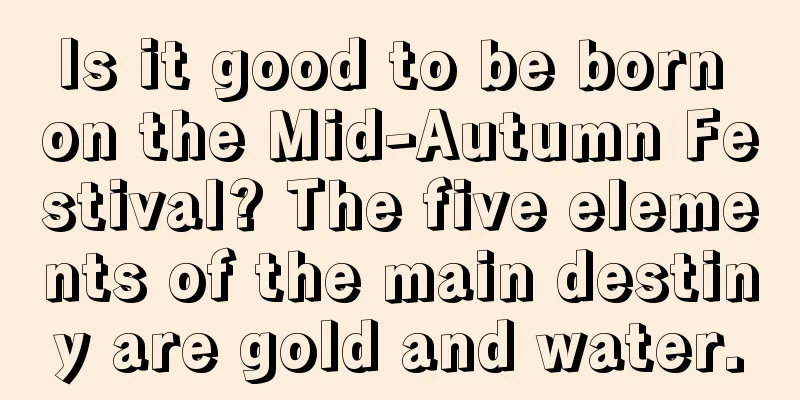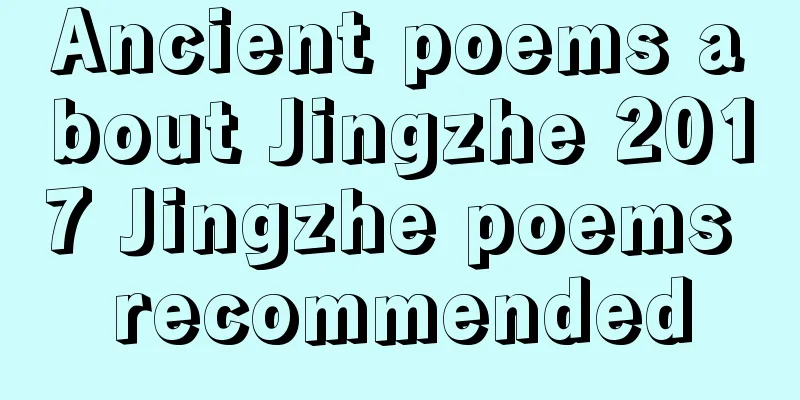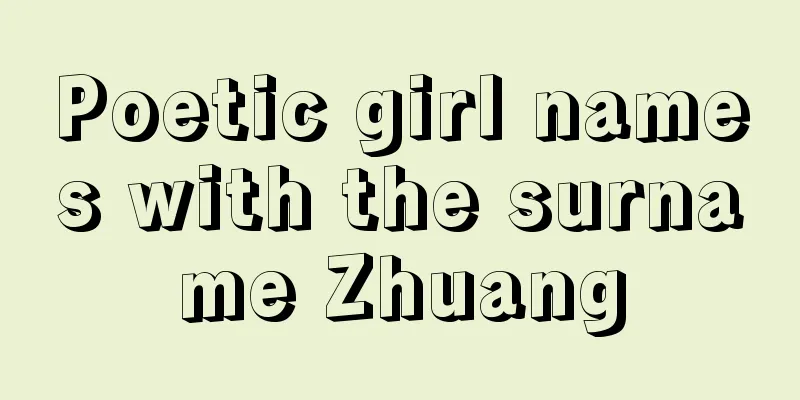2019 Chaoshan Qingming Festival customs These customs must be remembered

|
There are many customs for Qingming Festival, and they vary from place to place. Chaozhou area attaches great importance to this festival. So what are the customs of Chaozhou Qingming Festival? Let’s take a look at it together below. 2019 Chaozhou Qingming Festival Customs The Chaoshan people's custom of celebrating Qingming Festival originated from the historical Central Plains region, and combined with local realities to form a self-contained local tradition, the core of which is still the sacrificial culture. On the traditional Qingming Festival, every family visits graves and worships their ancestors. The first step of tomb sweeping is to clear the weeds around the tombstone and wash the ground clean. The area around the tombstone is called "waicheng". In Chaoshan dialect, "waicheng" is a part of the house that needs to be cleaned. Every year during the Qingming Festival, Chaoshan people use sickles and hoes to clear away weeds and small trees. After the cleaning is completed, the inscription on the tombstone will be painted. Afterwards, everyone placed all the sacrificial items in front of the tombstone and began the sacrificial ceremony. The process of sacrifice. That is, everyone takes turns kneeling in front of the tombstone, and the women of the father's generation silently recite the words of the promise made to Cheng Yu. Items that have been used for ancestor worship are no longer items in the general sense, but carry a kind of "blessing" from the ancestors to the descendants. Everyone will share equally according to the amount of sacrifices. This custom was even more popular during the era of burial, and after cremation became popular. On Qingming Festival, people go to the places where the ashes of their deceased relatives are kept to pay homage and then share the offerings. Every year when offering sacrifices to ancestors, a piece of paper is placed on the tomb. If it is a new tomb built after the Qingming Festival of the previous year, twelve coins will be pressed on the top of the tombstone. In a leap month, thirteen coins will be pressed on the top as a payment for the deceased's ghost expenses. Generally, five to seven layers of paper strips are placed on old graves. The width of the road will be the same as the width of the previous year, and it cannot be expanded or reduced at will. It is said that this is the extent of the "land rent" paid by the deceased. The Qianlong edition of the "Haifeng County Annals" states, "On Qingming Festival, people worship their ancestors. Many people from distant times have offered sacrifices to their ancestors. When offering sacrifices, they place a grid on the tomb, and the whole mountain is covered with red and white paper, which is called hanging paper." There are two forms of tomb sweeping among the local people: private tomb sweeping and public tomb sweeping. Sacrifices or meals are offered and paper money is burned during the worship. In some places, money shells are also offered. Therefore, the offerings for tomb sweeping must include boiled snakes. After eating the wealth, you can also use the shells to press paper strips, which means to leave them for your ancestors as money. There is also a custom of pressing money, that is, the tomb of a newly built grave last year is called "Xinshe" this year, and red and white paper strips must be pressed. Use white paper strips for pressing every year thereafter. Since paper is indispensable during the tomb-sweeping ceremony on Qingming Festival, tomb-sweeping is also commonly known as "passing paper". In Chaoshan, tomb sweeping is also called "hanging paper money" or "visiting the grave". To distinguish it from tomb sweeping during the Winter Solstice, tomb sweeping during the Qingming Festival is called "hanging spring paper". When people go to their ancestral tombs to worship, they first remove the weeds and trees in front of and on the tomb, clean it up, add new soil, and repair the tomb. The words on the tombstone are rewritten with red paint, and the name of the deceased is written with green paint. Then paper is hung, incense is burned, and firecrackers are set off. The Chaozhou people are quite particular about ancestor worship. For example, when worshipping ancestors, they must wait until all the people in the room, especially the men, are present before setting off firecrackers. Then the elders will take the lead in kneeling down and worshipping. In addition, Chaoshan people call tomb sweeping "precious paper". This "expensive paper" does not mean "paper is expensive in Luoyang", but passing a piece of paper on the ancestor's grave once represents a worship. The "precious paper" used for Qingming Festival is all bought from the street, some of which are made into strips and some are whole sheets. If you buy a whole sheet of paper, you have to cut it into long strips yourself with scissors. Then they are divided into clusters, with grandparents getting more and other distant ancestors getting relatively less. Every time they went to a place, they would pick up a stack of paper and corresponding offerings and go up the mountain. According to the different time, locals divide Qingming into ancient Qingming and modern Qingming. In ancient times, Qingming Festival was on the third day of March, but now it is on April 5th in the Gregorian calendar. Some people go to buy precious paper on a specific day every year, which varies from year to year. More people go on April 5th, Qingming Festival, in the Gregorian calendar. Therefore, during the Qingming Festival, people are taught to worship their ancestors. In addition to various group activities, the "mountains and rivers change color" after the activities. Because after the sacrifice, white paper should be placed on the tablet of the great ancestor. The ancestral tomb with many people is filled with white paper strips everywhere. Every year when Qingming Festival comes, the mountains are all covered with white, as if the souls of our ancestors have returned. As to why white paper strips were used to devalue paper, there is a legend related to Qin Shi Huang. It turns out that this white paper is called "Soul-Guiding Pomegranate". Qin Shihuang needed a lot of bricks and stones to build the Great Wall. Due to the invasion of foreign tribes, the construction of the Great Wall was particularly urgent. There were not enough bricks and stones were nowhere to be found. So, Qin Shihuang issued an imperial decree to remove all the bricks and stones from nearby tombs and use them to build the Great Wall. At that time, Qin Shihuang's father had just passed away, and according to the imperial decree, his father's grave had to be dug up as well. So he said to the minister in charge of digging graves, "Don't dig graves with marks." According to custom, in ancient times, after a person was buried, a soul-guiding banner would be inserted on the new grave. The soul-guiding flags are made of white paper strips and are very light. They rustle in the wind on the new graves, which is very eye-catching. When the minister who was digging graves walked to the tomb of Qin Shi Huang's father, he saw a white paper hanging on it. He thought it was a mark made in advance, so he did not dig it up. When the common people saw that the graves with white paper strips hung on them were not dug up, they would cut white paper strips and hang them on the graves. Do this year after year. In this way, it was passed down from generation to generation and became a custom. With the continuous migration of population, the custom of "expensive paper" among the Jiangnan people seems to have been passed down in this way. Nowadays, people have forgotten the origin of "expensive paper". Regarding the ancient Qingming customs in Chaoshan, the most detailed record is in Qianlong's "Nan'ao County Annals": "On the Qingming Festival, people decorate the graves, carry sedan chairs and offer wine, or hang paper, or sweep the tombs, and go to the suburbs in an endless stream. After the sacrifices, they borrow grass to hold the cups, pass them around to toast each other, and return home at dusk." According to the "Puning County Annals", in some places even "the custom is to play drums and fire many guns and cannons." The combination of tomb-sweeping activities and outings in the mountains and forests naturally presents a noisy and joyful scene. In Chaoshan, it is common to have banquets in the suburbs during the Qingming Festival, because the Chaoshan people have always had the custom of outings on the Qingming Festival. During the Qingming Festival, spring comes to the earth, with pink peach blossoms, green willows, long grass, and gentle spring breezes, bringing warmth. People go out into the wild in groups to enjoy the scenery. This is a custom that has existed among the Chaoshan people since ancient times. Nowadays, Chaoshan people often combine tomb sweeping with outing. Bring some drinks with you when you visit the graves, and wait until you are done. Find a flat place, sit on the ground, and share the offerings, which is a unique and wild experience. This custom has been passed down from generation to generation. In some places, there are activities such as cockfighting, football, basket kicking, swinging, and kite flying, which are very entertaining. Tomb sweeping is a grand ceremony to commemorate ancestors, and is often an opportunity to reveal a family's prosperity and financial resources. Therefore, the more people who go to worship, the better, and therefore often the entire family comes out. For example, in Fengxi, Chaozhou, some old officials’ families beat drums and gongs during the Qingming Festival 49 years ago, and visited the graves of their clans together to show their prominence. Every year, one person from each clan is responsible for organizing the tomb sweeping activities. If the ancestors left behind land or real estate, the brothers in the family would take turns to manage the rent of the public land every year and use it to purchase offerings. If the ancestors did not leave any land, the offering money will be distributed equally among the males before sweeping the tomb. After the ancestor worship was completed, the offerings were distributed to everyone for a meal in front of the tomb. During the dinner, offerings are distributed according to the number of people who participate in the tomb sweeping ceremony to encourage relatives to go tomb sweeping. Since ancient times, people in Chaoshan have had the belief of wearing willow branches on Qingming Festival to ward off evil spirits, such as "If you don't wear willow branches on Qingming Festival, your red forehead will turn into white hair" and "If you wear willow branches on Qingming Festival, blessings will come to thousands of families." Therefore, the custom of planting willows, wearing willows, replacing willows and giving willows as gifts during Qingming Festival has been passed down everywhere. The Hanshan area has a long history of cultivating willow trees and using willows as medicine. Chinese medicine often uses fresh weeping willow leaves to boil water, which is used as a herbal medicine for measles, a common respiratory infectious disease in children, with very good efficacy. It is recorded in "Compendium of Materia Medica" by Li Shizhen of the Ming Dynasty that willow leaves have the effects of clearing heat, detoxifying and diuresis. For those with weak spleen and stomach, loss of appetite, and indigestion, it is effective to pick a bunch of willow branches on Qingming Festival, boil soup, and cook millet as rice to eat. Modern pharmaceutical analysis shows that willow twigs contain ingredients such as salicylic acid, iodine, and scutellariae, which have the effects of astringency, bactericidal, heat-clearing, detoxification, and blood pressure lowering. Therefore, the ancient Chaoshan people planted willow branches and hung green plants on Qingming Festival to "ward off evil spirits". In fact, it was the faint fragrance emitted by the willow branches that could detoxify and kill bacteria. It can be seen that this custom does have certain scientific basis. Summary: In addition to tomb sweeping, Chaoshan people also eat pancakes, pine cones, and go on outdoor picnics. But the most important thing is the tomb-sweeping activity on the day of Qingming Festival. |
<<: Blessings to teachers on Women's Day 2019
Recommend
Naonao Witch Shop Weekly Fortune 2.1-2.7
The coming week will be the countdown to the holi...
Constellation Secrets: The 12 Constellations Most Suitable for Being a Wife
Each of the twelve zodiac signs has a different p...
Magical Tarot Cards Predict the Fortunes of the Twelve Zodiac Signs in September 2011
As September comes, the magical Tarot divination ...
A complete analysis of the recent popular test of love and career
Do you know what kind of happiness you want? What...
Children's rhymes about the Mid-Autumn Festival Interesting children's rhymes about the Mid-Autumn Festival
What are some nursery rhymes about the Mid-Autumn...
Girls' names with the character "Rong"
A name is a birth gift given to us by our parents...
Naonao Witch Shop Daily Horoscope 2018.03.08
Work will be pleasant, easy, and even peaceful to...
Birth date fortune telling: which 6 days people were born on, are born with wealth
The method of predicting fortune and judging good...
Tang Liqi's daily horoscope 5.26-5.27
Whether it is work or home on the weekend, as lon...
Tang Liqi's daily horoscope 2018.01.16
Tang Liqi's daily horoscope for 2018.01.16 is...
What do the twelve zodiac signs care about most? He actually doesn't care about you that much.
Everyone has something they care about the most, ...
What should you pay attention to in the Year of the Dragon? Fortune and lucky charms in the Year of the Dragon
What should we pay attention to in the Year of th...
Auspicious days and times for May 29, 2017
How was May 29, 2017? Is it okay to move on May 2...
What kind of job is suitable for Scorpio? When looking for a job, you must not only be interested in it but also find it suitable for you.
Everyone has a different personality, learning ab...
December 18, 2018 lunar calendar
How about getting married on December 18, 2018? I...









